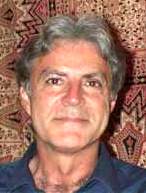Non-locality and Quantum Physics: The Part and the Whole
Year: 1996
Keywords: Non-locality, Quantum Physics
Debates between reductionism and holism have flared, on and off, in the past decade. Following the mechanistic view of nature held by Newton and Descartes, physics has been highly reductionist in its attempt to explain phenomena by reducing them to simple terms. To reduce atoms and nuclei to their subnuclear components has been one of the guiding themes of theoretical and experimental physics in its search for the Urstoff, the basic essence of things. The limits of this approach have been pointed out by holistic thinkers who claim that organisms and natural systems must be considered as irreducible wholes. In the holistic approach, creativity and innovation are viewed as an intrinsic property of systems, the larger picture of systems containing fundamental aspects of the whole being lost through reduction. However, a global vision of modern physics shows that it does not really oppose holism, so that there is no reason why the tweo views cannot be reconciled within a rational framework. In order to provide elements which support this reconciliation, it is convenient to revise the polemical concept of non-locality and its relation with holism and with consciousness.


